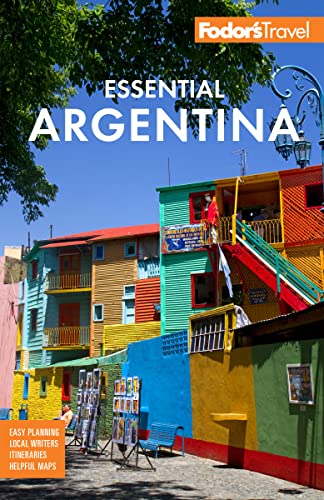Health
No specific vaccinations are required for travel to Argentina, but the Centers for Disease Control and Prevention recommend vaccinations against hepatitis A and B and typhoid for all travelers. Yellow fever is also advisable if you're traveling to the Iguazú area. Children traveling to Argentina should have current inoculations against measles, mumps, rubella, and polio.
People in Buenos Aires drink tap water and eat uncooked fruits and vegetables. However, if you're prone to tummy trouble, stick to bottled water.
You wouldn't know it from locals' intense love of sunbathing, but the sun is a significant health hazard in Argentina. Stay out of the sun at midday and, regardless of whether you normally burn, wear plenty of good-quality sunblock. A limited selection is available in most supermarkets and pharmacies, but if you use high SPF factors or have sensitive skin, bring your favorite brands with you. A hat and decent sunglasses are also essential.
Contacts
Centers for Disease Control and Prevention. 800/232–4636; wwwnc.cdc.gov/travel.
World Health Organization. www.who.int/en.
Health Care
Argentina has free national health care that also provides foreigners with free outpatient care. Although medical practitioners working at Buenos Aires' hospitales públicos (public hospitals) are usually first-rate, the institutions themselves are often underfunded: bed space and basic supplies are at a minimum. Except in emergencies, consider leaving these resources for those who really need them.
Private consultations and treatment at Buenos Aires' best private hospitals are reasonably priced compared with those in the U.S. (so much so that medical tourism is booming). All the same, it's a good idea to have some kind of medical insurance. Doctors at the Hospital Británico and Hospital Alemán generally speak English; indeed, so do staff at many private hospitals.
Hospitals
Hospital Británico. Perdriel 74, Barracas, Buenos Aires, Buenos Aires, C1280AEB. 11/4309–6633; www.hospitalbritanico.org.ar.
Hospital Alemán. Av. Pueyrredón 1640, Recoleta, Buenos Aires, Buenos Aires, C1118AAT. 11/4827–7000; www.hospitalaleman.org.ar.
Insurance
You might want to consider buying trip insurance with medical-only coverage. Neither Medicare nor some private insurers cover medical expenses anywhere outside the United States. Medical-only policies typically reimburse you for medical care (excluding that related to preexisting conditions) and hospitalization abroad and provide for evacuation. You still have to pay the bills and await reimbursement from the insurer, though.
Medical-Only Insurers
International Medical Group. 800/628–4664; www.imglobal.com.
International SOS. 800/523–8662; www.internationalsos.com.
Wallach & Company. 800/237–6615; 540/687–3166; www.wallach.com.
Medical Evacuation
Membership in a medical-evacuation assistance company gets you doctor referrals, emergency evacuation or repatriation, 24-hour hotlines for medical consultation, and other assistance. International SOS and AirMed International provide evacuation services and medical referrals. MedjetAssist offers medical evacuation.
Medical Assistance Companies
AirMed International. 800/356–2161; www.airmed.com.
MedjetAssist. 800/527–7478; www.medjetassist.com.
Over-the-Counter Remedies
Farmacias (pharmacies) carry painkillers, first-aid supplies, contraceptives, diarrhea treatments, and a range of other over-the-counter treatments, including some drugs that would require a prescription in the United States (antibiotics, for example).
Note that acetaminophen—or Tylenol—is known as "paracetamol" in Spanish. If you think you'll need to have prescriptions filled while you're in Argentina, be sure to have your doctor write down the generic name of the drug, not just the brand name.
Farmacity is a supermarket-style drugstore chain with branches all over town; many of them are open 24 hours and offer a delivery service.
Pharmacies
Farmacity. 11/4322–7777; www.farmacity.com.ar.




